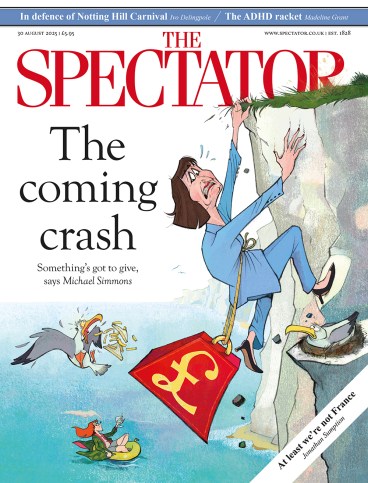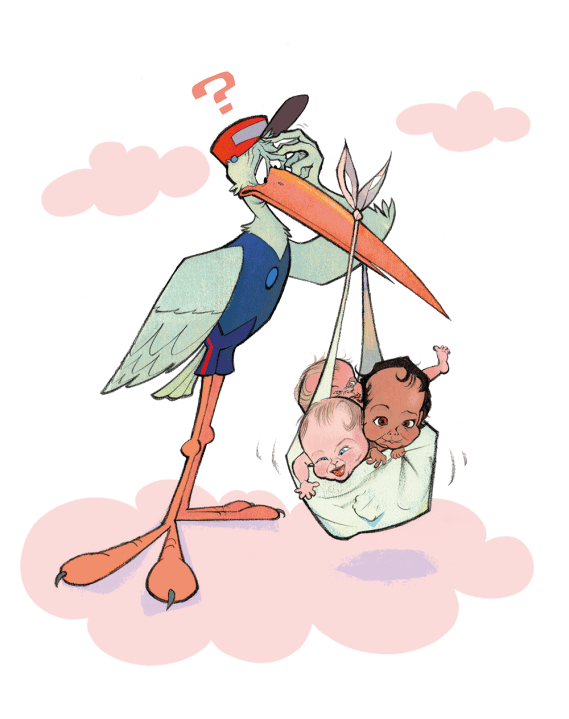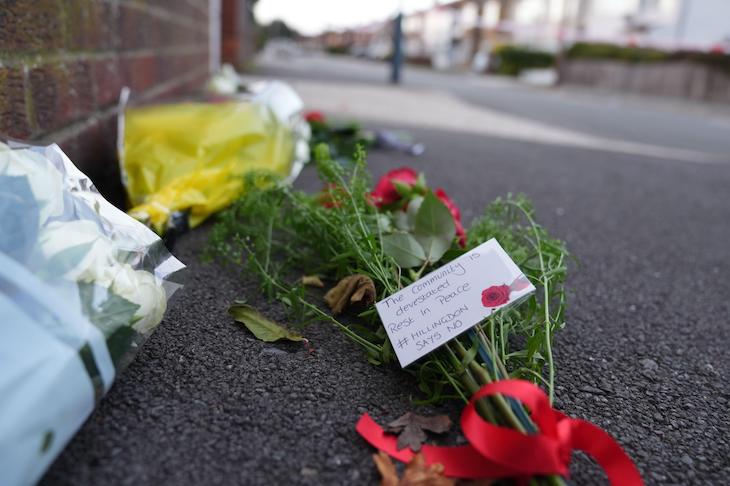
The foster care system in this country is collapsing. There are roughly 80,000 children who’ve been removed from violent or neglectful parents and need homes, but there’s a catastrophic lack of people prepared to care for them – a shortfall of around 6,500 foster carers.
The rate of decline is terrifying. Every year the small pool of available foster households shrinks and those who do apply to be carers are increasingly elderly. Perhaps you assumed that a generation with ‘Be kind’ tattooed on their wrists would leap to look after the worst off? Not a chance. ‘Be kind’ is an instruction to others, not a memo to self. Neither my generation (X) nor the millennials are interested in stepping up. We rubberneck the tabloid stories of poor abused children online. The tears plop on to our iPhone screens, then on we scroll without it occurring to us that we could actually help.
It’s house prices and a lack of bedrooms, say researchers: younger people would foster if only they had the space. No. Quite honestly it’s a lack of grit and a lack of any sense of duty. Thousands of us have the space. I have the space. Foster parents of the past turned box rooms into bedrooms.
The truth is that each new generation grows up less than the last. Men and women, even in their mid-thirties, still think of themselves as children and assume it’s for others to look after them. Where past generations felt themselves lucky and thought they should ‘give back’, too many thirtysomethings imagine they’re oppressed. Some 37 per cent of women under 25 say they suffer from a mental illness. Why would they ever take on responsibility for a traumatised child? And how, then, is the foster system to survive at all?
It’s like watching a bridge collapse in slow motion, a bridge that gave the unluckiest and most genuinely oppressed at least a shaky chance of escaping their fate. And if the bridge caves in completely, it’s not just the kids who’ll suffer. The children taken into care end up in gangs, on drugs, in prison. Any support – love – they receive that mitigates the damage helps society. All the recent tough talk of cracking down on or crushing crime amounts to very little if we keep sending thousands of abused children into the prison system.
So there’s a huge recruitment problem in foster care, but I’m afraid that’s just half the story. The pool of carers is shrinking so fast because there’s a retention problem too. Some 60 per cent of existing foster carers say they are either considering resigning or have made the decision to resign, and less than half would recommend fostering to others. It’s not the cost or the inadequate carer’s allowance that’s to blame, so much as what they describe as burnout and unbearable stress. Some £44 million was announced in last year’s Budget for regional fostering recruitment hubs, but what’s the point of a grand recruitment drive if all you’re doing is ushering people towards a nervous breakdown?
What’s the point of a recruitment drive if all you’re doing is ushering people towards a breakdown?
The obvious, painful truth is that the kids who need homes are often more complicated to look after than they once were, though no one wants to admit it. The proportion of looked-after children with foetal alcohol spectrum disorder (FASD) is said to be 14 per cent, but when foster carers talk about it among themselves they suspect the true percentage is more than double that. The National Organisation for FASD estimates that around 30 per cent of children in care have the disorder, which means unfixable brain damage, often dyslexia, personality disorders, rage and anxiety, and there’s very little training or support for the carers. They’re often also utterly in the dark about a child’s history, suddenly presented with a child with complex needs that no one prepared them for. The records from a child’s previous placements go missing. Social workers seem as much in the dark as anyone else.
I once wrote about a woman, Sarah, who’d been deeply scarred by her experience as a carer. She’d been keen to help, but because her own son was still young she’d told her fostering agency that she could not house a child with any history of sexual abuse. She was given a boy who had been abused by a paedophile and who began to make indecent suggestions to her own children. But instead of apologising and investigating, the fostering agency froze Sarah out and put it about that she was delusional.
This week it was reported that councils are failing to protect children in care from gender ideology – worse, that they are pushing already traumatised children towards transitioning. A report by Policy Exchange said that councils had actually paid thousands to activist organisations to run training sessions on gender ID.
One of the bravest, most generous-hearted women I know – let’s call her Jane – recently applied to become a foster parent. Jane was in care herself in the dark days of the 1980s. She understands what neglect and brutality do to a child and she isn’t remotely fazed by tricky behaviour – ‘acting out’. She has already fostered young relatives who would otherwise have been in care.
Jane couldn’t be a more ideal foster carer and the local authority should have fallen on her neck, but instead it pushed her away. ‘The first thing they did in the meetings was ask for bloody pronouns,’ says Jane. ‘I won’t play that game so my hackles went up. Then we had to promise to affirm the gender identity of any child we might foster. I left before I could be rejected.’ It’s terrible to think how many others might have been put off like Jane.
A great friend of mine, in the teaching business, told me that two married friends of hers had applied to become foster carers, both with ideal CVs. The husband was a headteacher who’d run a successful school for children with behavioural difficulties; his wife was a child psychologist. If anyone could cope with an FASD kid it was them. They had plenty of spare bedrooms and their own children had left home. The only possible mark against them was that they were well known to have right-wing political views. Of course the left-wing local authority deemed them unsuitable to be carers.
At the same time, said my friend, the same local authority approved as a foster carer a woman who’d had her own two children taken from her by social services. Better abused than raised Conservative.
‘The first thing they did was ask for pronouns,’ says Jane. ‘I won’t play that game so my hackles went up’
Councils also twist themselves in knots trying to place children with carers of their own ethnicity and religion, without facing the fact that, though there’s little appetite for fostering among the white middle-classes, there’s even less among black and ethnic minority Brits.
Local authorities consider it vital for Muslim kids taken into care to be placed with Muslim families. But though the number of Muslim foster children grows year on year as more and more asylum seekers enter the country, the number of Muslim foster carers stays stubbornly small.
I’ve never seen any official explanation for this, but one answer could be that the Quran doesn’t exactly make fostering easy. Though the Prophet encouraged his followers to care for orphans, he also said that any fostered or adopted child can not be deemed a relative, and this means that for observant Muslims hijab rules come into play. Any female Muslim foster carer would have to keep her head covered, even in her own home, if she fostered a boy approaching puberty. A girl taken into a Muslim household would be forced to stay covered even indoors. Shouldn’t fostering agencies and councils address this? Why spend money on a desperate search for Muslim carers if it’s futile? What’s the point of councils keeping Muslim children swilling around the system, waiting for homes that won’t appear?
People apply to be foster carers because they want to ‘make a difference’; they imagine that the child they rescue will be transformed and grateful. But the final and most depressing fact to be faced is that in the past few years a culture of ‘making allegations’ has grown up. A child will suddenly complain that they’ve been physically, usually sexually, abused by their foster carers. It’s often the foster child’s biological parents who cook up the complaints. But every allegation has to be scrupulously investigated, and this can sometimes take years. It’s psychologically devastating for a carer who imagined they were helping.
One former foster carer says: ‘It finally happened. I had accusations against me. I knew it would happen. Everyone I spoke to inside the foster system said it happens to every male. It’s awful. I hate the feeling. I just wanted to make a kid’s life better. I can’t stand any more after this. I am out.’
‘We’ve gone a full circle,’ says Jane, ‘from a culture in which no one believed us when we tried to tell them we were being abused, to one in which the kids are taking the mickey.’ But she also tells me to cheer up about it all. Yes, there’s a shortage of carers, and yes, the allegations are soul-destroying, but don’t forget, she says, that even so things are better than they were. Foster kids like Jane were often used as free labour in the 1980s or handed over to a waiting line of paedos.
The new emphasis on kinship care – children looked after by their extended family – is very good news, she adds. At the end of March last year, family and friends care accounted for about a fifth of all fostering provision. Jane herself, who successfully brought up her own relatives, is a testament to how well it can work.
But she is also a testament to fostering’s failures. Until councils are actively seeking out and encouraging women like her to sign up – decent, tough women with no use for nonsense ideology – the system will continue its terrible collapse.










Comments